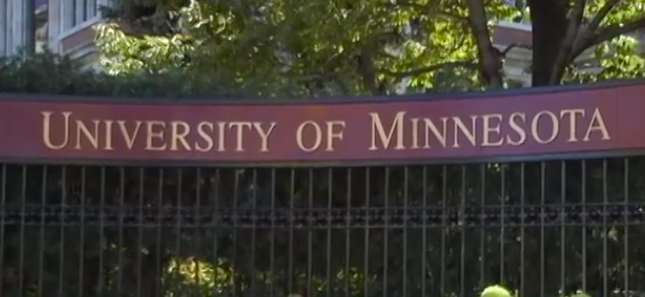Minnesota lawmakers propose free college tuition bill

State senators from the Democratic-Farmer-Labor Party (DFL) announced a bill that would make college tuition free for all Minnesota college-aged individuals. It is unclear whether it will cover refugees or illegal immigrants who may not have legal residency or immigration paperwork.
Minnesota Public Radio (MPR) reported on the lawmakers’ announcement and press conference.
The bill, known as SF 1986, would cover tuition and fees for all Minnesota students who make a “gross adjusted family income under $120,000 by Fall 2024,” as MPR noted. It could cost state taxpayers to the tune of $314.8 million per year.
The primary bill author Omar Fateh, a state senator representing parts of Minneapolis, said that it makes higher education accessible to those who cannot afford it. “We’ve seen across the state — whether it’s urban, rural, suburban — declining enrollment across the board. And right now we are really in a crisis, I would say we’re in an emergency.”
One of the bill’s co-authors is a college professor, named Aric Putnam, and he said that higher education needs more state government funding.
Putnam teaches at the College of Saint Benedict and Saint John’s University, and according to his online bio, “teaches and researches rhetorical history, criticism, and theory, with particular emphasis on the history of public arguments about race, colonialism, and political culture. His current research explores the role of place in the radical rhetoric of the African Diaspora, from provincial nationalisms to the transnational visions of black surrealism.”
Putnam said, “I’ve seen the stress that students feel. I’ve seen the pain on my colleagues’ faces because they don’t know how to help young people deal with that stress because they don’t have the resources to go elsewhere. Seeing class sizes balloon while options decrease.”
It appears that neither Fateh nor Putnam addressed some of the underlying issues facing higher education, such as lack of student preparedness for college courses or the skyrocketing cost of tuition and fees due to a growing bureaucracy of administrators, which contributes to lower student enrollment and growing student loan debt.
To this point, a Republican state senator highlighted some of the problems with the bill proposal. Jason Rarick, who represents Pine City, called into question the high salaries for college administrators and rising tuition. He said, “The schools see the assistance is there and can raise the salaries of the administration who … the further the way you get from the student, the more money you make.”
If the bill becomes law, which is possible as the Minnesota state legislature and governor’s office are Democrats, it could assist about 60,000 Minnesota students (according to Minnesota’s Office of Higher Education).




